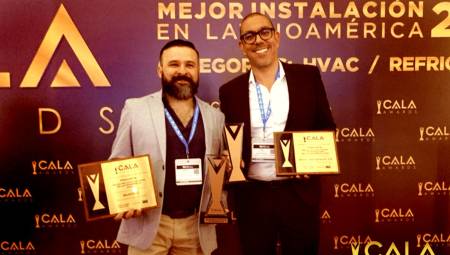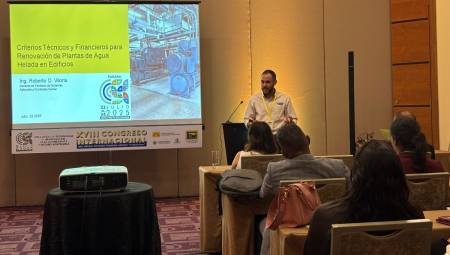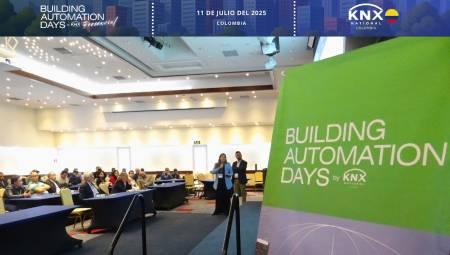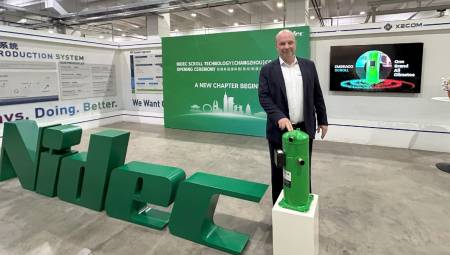 International. A report published by the World Economic Forum analyzes climate change as humanity's most likely existential challenge, which demands urgent action globally, and explains how Revolution 4.0 will help address climate change.
International. A report published by the World Economic Forum analyzes climate change as humanity's most likely existential challenge, which demands urgent action globally, and explains how Revolution 4.0 will help address climate change.
As the 2019 Global Risk Report will clearly show, environmental crises, especially the inability to address climate change, are among the most likely and most impactful risks facing the world over the next decade. 2018 saw record levels of costs due to extreme weather events.
In 2018, the Intergovernmental Panel on Climate Change (IPCC) focused much more attention on the crisis. Its Special Report on the Impacts of 1.5°C Global Warming, published in October 2018, states that we only have twelve years to act if we are to avoid dangerous climate change.
Science has never been clearer in its concern about the risks of climate change and the pressure it puts on our oceans and other vital ecosystems, including tropical forests and freshwater sources. However, our response to melting glaciers is incredible. While there are more and more solutions, especially in the energy sector, there is still no movement in global action commensurate with the challenge.
Why not?
Quarterly reporting cycles, shorter mandate periods and the need to respond to crises reduce the expected time frames for decision-makers from years to weeks, days and hours. In our increasingly complex world, the urgent scientific message on climate change struggles to navigate the cycle of news and competitive agendas. The effects of the fourth industrial revolution on the economy, employment and national security, for example, capture much of the attention of political and business leaders. Growing doubts about the future of jobs and growth are forcing many politicians to look inward for quick fixes to domestic insecurities, rather than leaning outward to cooperate on more complex global issues, such as climate change.
This means that we also need leadership from others on climate change. Given the variety of issues that governments have to deal with in today's complex world, we cannot expect them, on their own, to solve the climate crisis. Nor should we. It is now widely recognized that an unprecedented level of collaboration and innovation, with the participation of many outside the public sector, will be needed to activate the large systemic transitions required in industry, technology, and the design of consumer goods and services to keep warming below 1.5°C. The good news is that many studies, such as the New Climate Economy and the Energy Transition Commission, point out that these changes in our economy are not only possible, but will also generate jobs and ensure better growth for the future.
However, to make this transition a reality, a new mix of measures is necessary. This will include, for example, establishing new forms of partnerships within and between the public and private sectors, forming new partnerships of like-minded governments, cities, states and provinces, and creating new leadership platforms for policy experimentation and public-private action, each geared towards different industrial agendas, national and regional. There are many good examples of such an important collaboration that is already beginning to manifest itself, such as the Alliance of Leading Climate Directors. This group of CEOs, with joint company revenues of more than $1.5 trillion, has already reduced its collective emissions by 9% since 2015 and has pledged to do more.
And then the question of speed arises. Given that the IPCC suggests that we only have twelve years to act, can an adequate number of different actions be mobilized in time? Again, this is where additional public-private approaches can play a role. With the rapid technological advances of the fourth industrial revolution, we will also be able to leverage new means to monitor, verify and report on the progress (or lack thereof) of global, regional and industry actions on climate, possibly through new forms of information transparency and real-time disclosures. This is likely to have a significant impact in the coming years on how effective climate policy action is perceived compared to the magnitude of the challenge, especially among young people. Greater transparency will boost awareness and simply increase the pressure to act.
To succeed according to the IPCC guidance, the international community must adopt this new agenda for climate action, generally focused on keeping global warming within 1.5°C, while encouraging multiple different approaches, collaborations and initiatives to support, reinforce and accelerate the Government's ambitions to deliver, or overcome, the Paris Agreement.
Addressing the climate challenge in today's world can perhaps be seen as building a global public and private "platform" for action. This platform intends to meet an overall goal within a given timeframe, although it allows and encourages a wide range of different partners to participate in different actions to achieve it. In fact, this is a good example of the new kind of enabling architecture that Globalization 4.0 seeks to foster: practical, public-private agreements to help governments find agile and collaborative solutions to solve pressing global problems in our most complex world, which is being rapidly transformed by the fourth industrial revolution.
Looking ahead to 2019, the World Economic Forum is proud to support the IMPORTANT UN Secretary-General's Climate Summit in September, which seeks to accurately scale that innovative multi-stakeholder collaboration to help address the climate crisis. To this end, I am very hopeful that this year's annual meeting in Davos can help spur the renewed momentum for climate action that we need for the coming months. To do this, we must encourage both the Davos spirit for collaboration and the platform for action approach to help scale our collective resolution of global problems, as required by Globalization 4.0.
* Klaus Schwab, founder and executive chairman of the World Economic Forum.
* World Economic Forum.














